The next few years could see a flood of applications for German citizenship if the government’s current reform plans go through as expected in 2023. Many long-time German residents are preparing their applications for the moment dual citizenship is allowed and residency requirements are also reduced from eight years to five (or in some cases even three).
But while some are waiting, many have already taken the leap.
According to official government statistics, 131,595 people became German in 2021. That’s a level not seen for almost 20 years – when record numbers of people were naturalising as German in the 1990s and early 2000s.
READ ALSO: Who are Germany’s foreign population and where do they live?
The German record for Einbürgerung – or naturalisation as a German citizen – was set in 1995 when over 313,000 people took up German passports. From 2010 to 2018 though, naturalisation numbers stayed roughly the same, with around 110,000 or so taking up German citizenship every year.
But in the last three years, the numbers have trended upward again.
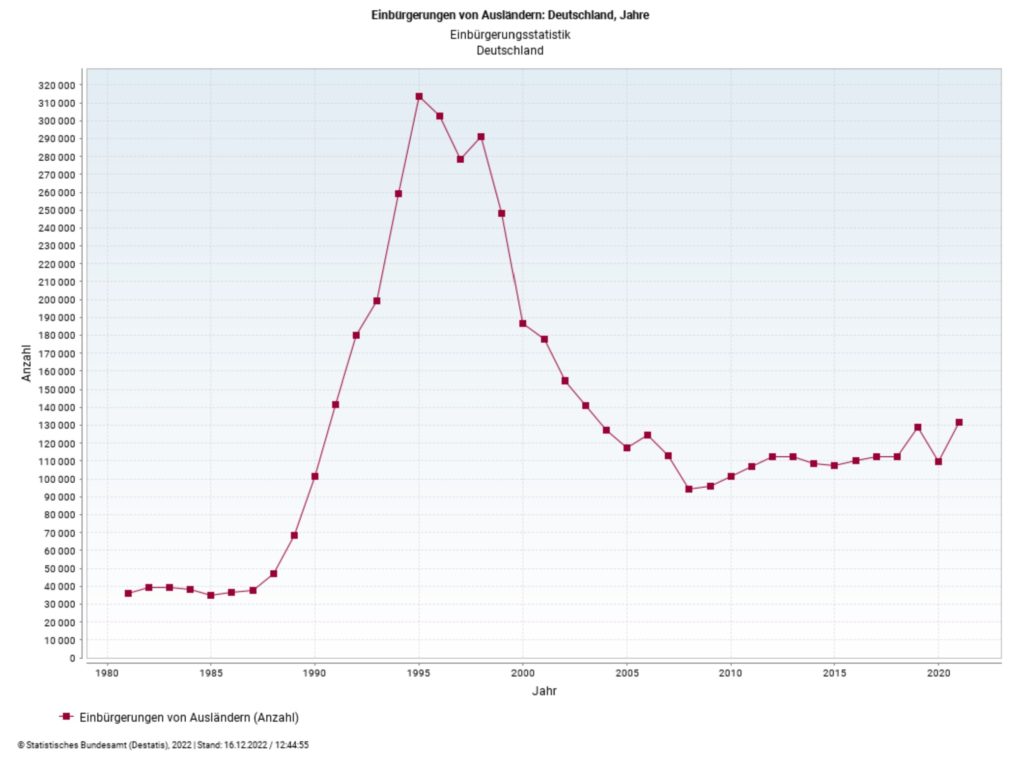
READ ALSO: HISTORY: What’s behind the push to reform dual citizenship laws in Germany?
So where are the new Germans of recent years coming from?
Syrians took first place in 2021 as the original nationality most often naturalising as German, with just over 19,000 of them getting their first German passport last year. That’s followed by just over 12,000 people from Turkey, and nearly 7,000 Romanians. At around 5,000 apiece, Poles and Italians rounded out the top five.
Brits, after naturalising in record numbers over the last few years, came sixth. Many raced to become German before the transition period set out in the withdrawal agreement ended, as non-EU nationals are required by default to renounce their previous nationality to become German. Due to the UK leaving the European Economic Area (EEA) at the end of 2020, 2021 was the first year Brits applying to become German had to give up their UK passport. Nevertheless, 4,500 still naturalised as German in 2021.
READ ALSO: Brexit: How thousands of Brits in Germany will be in limbo after doors close on dual nationality
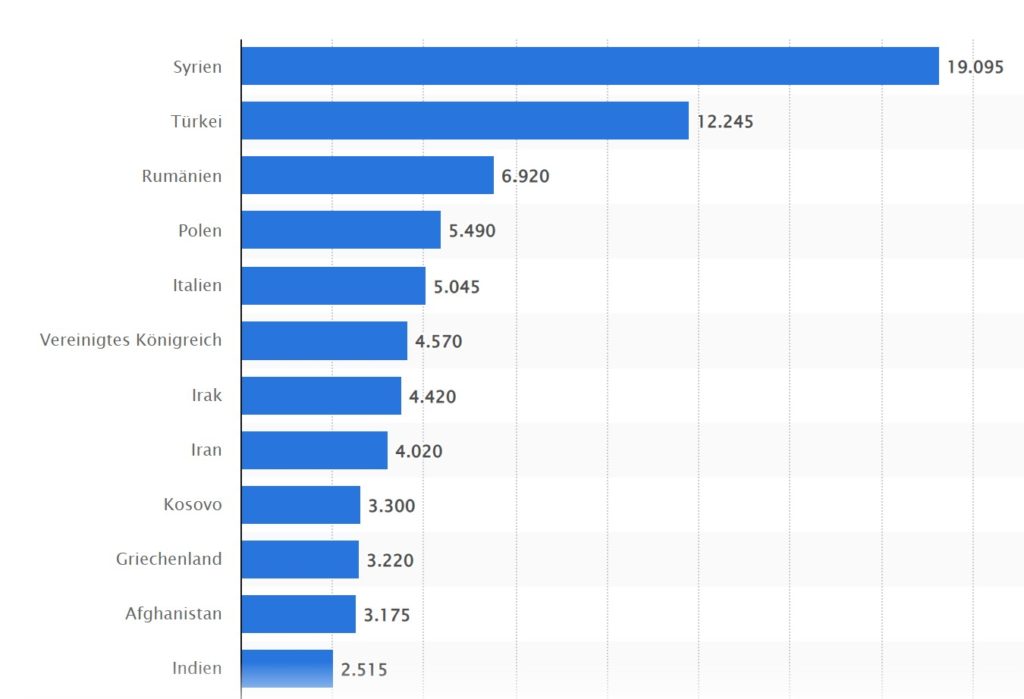
Becoming German in 2021 was also fairly gender-balanced, with only slightly more men naturalising than women. Around two-thirds of people who became German in 2021 were between 25 and 45 years-old, with numbers dropping significantly after age 45.
Do most new Germans give up their previous passports?
No, they don’t.
Firstly, nationals of other European Union countries, Switzerland, or those not in the EU but in the EEA – like Norway – are not required to give up their previous passport in order to become German.
Many countries, such as Brazil, also don’t allow their citizens to renounce citizenship. Since it’s not legally possible, people from these countries also don’t have to give up their previous passport to become German.
Others can ask to retain their original citizenship when they apply to become German. This usually involves citing compelling reasons – such as avoiding financial losses – for keeping your previous nationality. Immigration lawyers can often help with these types of applications, but this process can limit dual nationality to those with more resources.
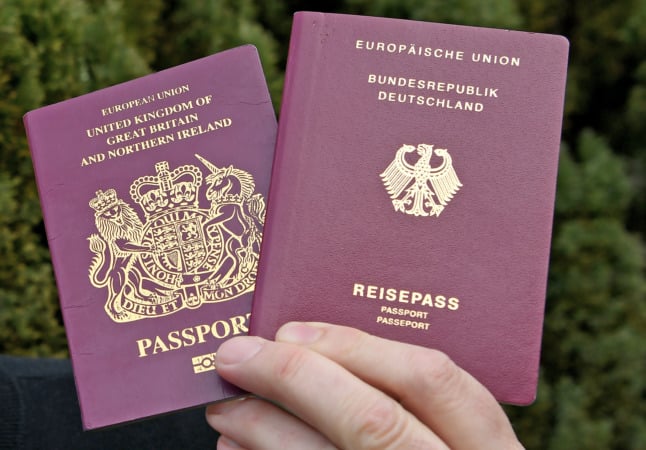
Although the opposition Christian Democrats have criticised the traffic light government’s draft law to allow dual citizenship for everyone, most new Germans actually already do keep their previous passport.
Nearly 91,000 new Germans applied to take citizenship in 2021 while retaining their previous nationality. That compares to just under 41,000 who gave up their previous citizenship.
READ ALSO: EXPLAINED: Could Germany’s conservatives block dual citizenship?
Where do the new Germans live?
New Germans have taken up residence around the country. But even adjusted for population, there are certainly places that see more new citizens than others. Of the eastern German states, only Saxony had more than 1,000 naturalisations last year. Not surprisingly, Germany’s most populous state – North Rhine-Westphalia – saw the most, at almost 30,000. Bavaria followed that at over 23,000. Germany’s city states also saw a high number of naturalisations – especially given their overall population. Just under 8,000 people took up German citizenship in Berlin last year and over 5,000 in Hamburg.
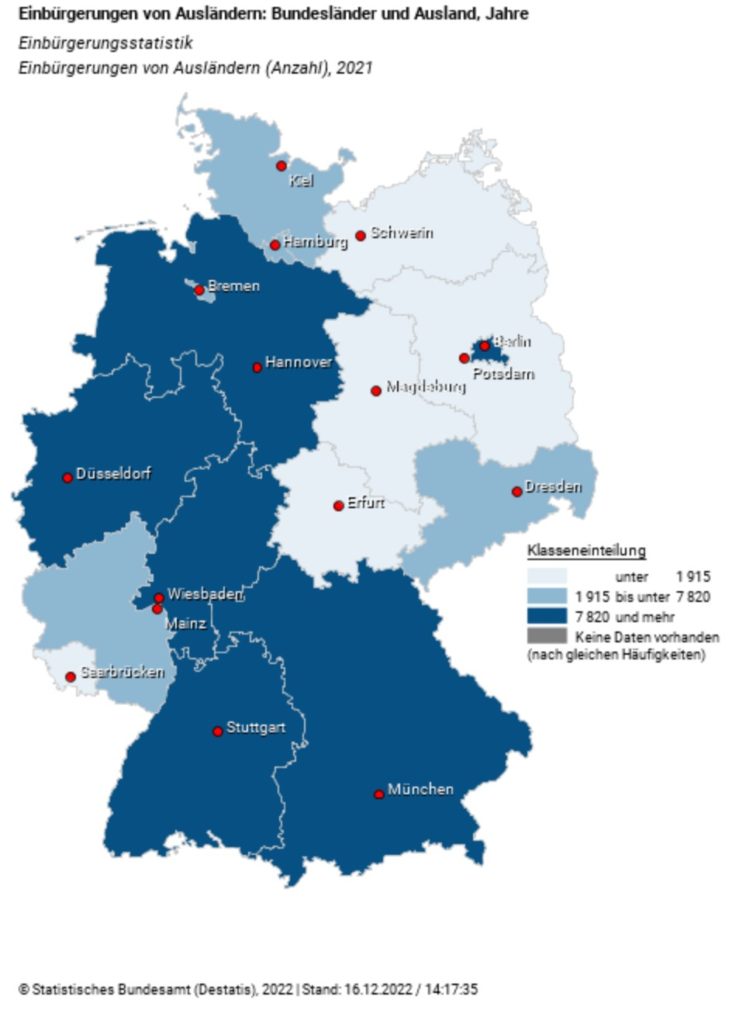
What about the next few years?
With the traffic light government planning on allowing everyone to keep their previous citizenship when naturalising, we might expect a lot more applications from long-time residents in the next few years, possibly leading to a spike in naturalisation numbers starting in 2023.
Parliamentarians working on the citizenship reform bill expect it to pass by next summer.
READ ALSO: INTERVIEW: ‘Germany must finally allow dual or multiple citizenship’


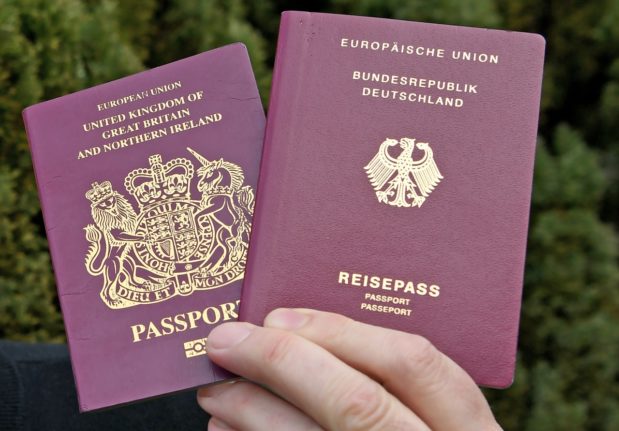
 Please whitelist us to continue reading.
Please whitelist us to continue reading.
Member comments